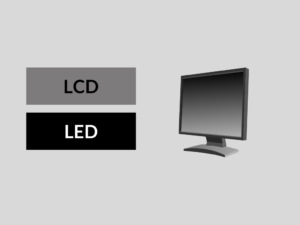Comparison between Incandescent and LED
What are Incandescent Bulbs?
Incandescent bulbs are traditional light bulbs that have been used for many years. They produce light by using a filament wire that is heated until it glows. The light produced is warm and soft, but they are not very energy-efficient.
Examples of Incandescent Bulbs
- A-shaped bulbs
- Globe bulbs
- Candle bulbs
- Spotlight bulbs
Uses of Incandescent Bulbs
Incandescent bulbs have been used in various applications such as residential lighting, commercial lighting, and decorative purposes.
What are LED Bulbs?
LED (Light Emitting Diode) bulbs are a more advanced technology. They produce light by passing an electric current through a semiconductor material, which emits light energy. LED bulbs are highly energy-efficient and have a longer lifespan compared to incandescent bulbs.
Examples of LED Bulbs
- A-shaped bulbs
- Tube lights
- Floodlights
- Strip lights
Uses of LED Bulbs
LED bulbs are used in various applications such as residential lighting, commercial lighting, automotive lighting, and outdoor lighting.
Differences between Incandescent and LED Bulbs
| Difference Area | Incandescent | LED |
|---|---|---|
| Energy Efficiency | Less energy-efficient, waste energy as heat | Highly energy-efficient, convert most energy into light |
| Lifespan | Shorter lifespan, typically 1,000 hours | Longer lifespan, typically 25,000 to 50,000 hours |
| Brightness | Produce warm and soft light | Produce cool and bright light |
| Heat Emission | Produce significant heat | Produce little to no heat |
| Environmental Impact | Contain harmful substances like mercury | Environmentally friendly, no hazardous substances |
| Size and Shape Varieties | Limited options | Wide range of options |
| Instant Illumination | Take some time to reach maximum brightness | Instantly reach full brightness |
| Dimming Capability | Can be dimmed with compatible dimmers | Can be dimmed, but not all LED bulbs are compatible with all dimmers |
| Durability | Fragile and prone to breakage | Durable and resistant to breakage |
| Cost | Relatively inexpensive | Initially more expensive, but long-term cost-effective due to energy savings and longer lifespan |
Conclusion
In conclusion, LED bulbs are a more advanced and energy-efficient lighting solution compared to incandescent bulbs. They offer several advantages such as higher energy efficiency, longer lifespan, cooler operation, and environmental friendliness.
People Also Ask
- Q: Are LED bulbs brighter than incandescent bulbs?
- Q: Can LED bulbs be used in fixtures designed for incandescent bulbs?
- Q: Do LED bulbs emit UV radiation?
- Q: Can LED bulbs be used with dimmer switches?
- Q: Are LED bulbs worth the initial investment?
A: LED bulbs can produce brighter light output compared to incandescent bulbs while using less energy.
A: Yes, LED bulbs are designed to fit into standard incandescent bulb fixtures.
A: Most LED bulbs do not emit UV radiation, but some specialized LED lights can emit a small amount.
A: Many LED bulbs are compatible with dimmer switches, but it is important to check the product specifications.
A: Despite the higher upfront cost, LED bulbs provide significant cost savings in the long run due to their energy efficiency and longer lifespan.



